News
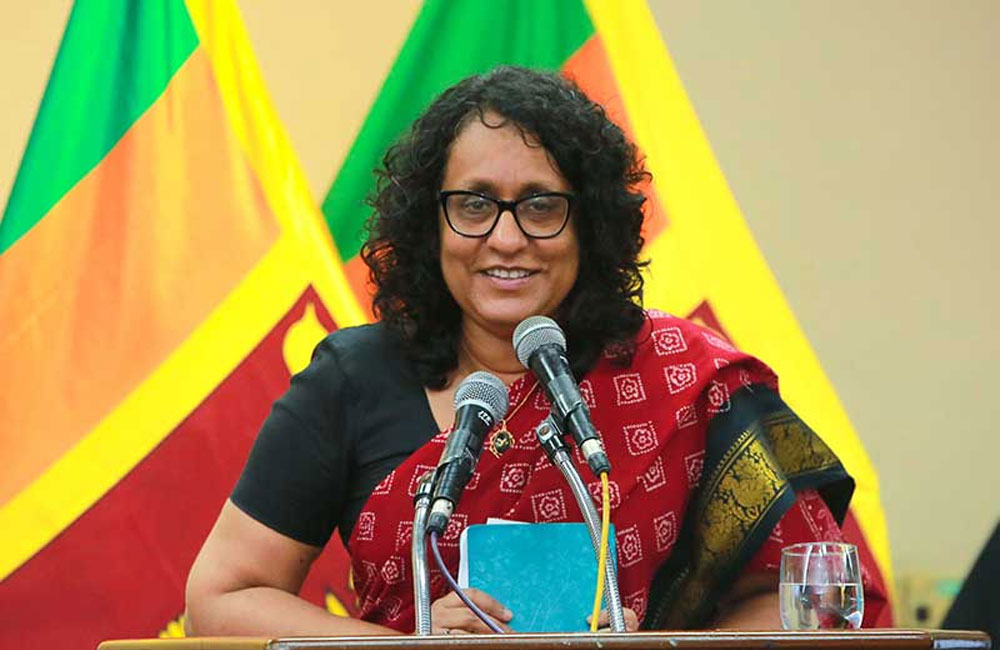
Prime Minister: Discipline is allowed at schools, violence is not
The proposed law on punishing child abuse is not targeted at schools or teachers but aims to protect children across society, Prime Minister and Minister of Education, Higher Education and Vocational Education Dr. Harini Amarasuriya said.
Speaking at a program held at the Ministry of Education on Friday (27) to brief principals of national schools, Amarasuriya explained that the amendment addresses both physical and psychological abuse faced by children in schools, institutions, police custody, and homes.
“This is not a law designed against schools or teachers. It is a reform intended for the protection of all children in society,” she said.
The Prime Minister stressed that the law does not ban discipline in schools. “We have not stopped punishment or maintaining discipline. What we say is that punishment should not be through physical or psychological violence. There are many positive ways to maintain discipline without subjecting children to harm or humiliation,” she added.
Amarasuriya also highlighted broader social concerns, noting that violence has become a dominant means of resolving conflict in the country. “Domestic violence is rising, and conflicts in homes, institutions, and even religious spaces are being settled through aggression. That is extremely dangerous. As a society, we need to move beyond violence to resolve our problems,” she said.
The Prime Minister emphasized the importance of workshops and discussions to introduce non-violent methods of maintaining discipline and called for a societal shift towards building a more developed and compassionate environment for children.

President AKD meets US President Donald Trump
President Anura Kumara Dissanayake has engaged in a cordial conversation with the President of the United States of America, Donald Trump, on the sidelines of a special dinner reception hosted by the US President.
In a statement, President Dissanayake said he had attended the special dinner reception hosted by President Donald Trump at the Lotte New York Palace Hotel on Tuesday (23).
He further said the special dinner reception was held for the heads of state who had arrived in New York to participate in the 80th Session of the United Nations General Assembly.

SLPP Municipal Councillor arrested
An SLPP member of the Dehiwala-Mount Lavinia Municipal Council and former Western Provincial Councillor, Amal Silva, has been arrested by the Walana Central Anti-Corruption Strike Force.
Police said Silva was taken into custody over the alleged possession of three SUVsvalued at more than Rs. 60 million. The vehicles are suspected to have been registered under forged documents.
Investigations revealed that the vehicles had been illegally imported into the country and registered under false numbers at the Department of Motor Traffic using forged documents.
Among the seized vehicles were three SUVs, including Land Rover and Mitsubishi models.
Preliminary investigations further uncovered that the registration had been carried out using forged documents prepared under numbers belonging to state-owned, condemned vehicles.
Police said the suspect will be produced before the Panadura Magistrate’s Court tomorrow (29) in connection with an ongoing case.
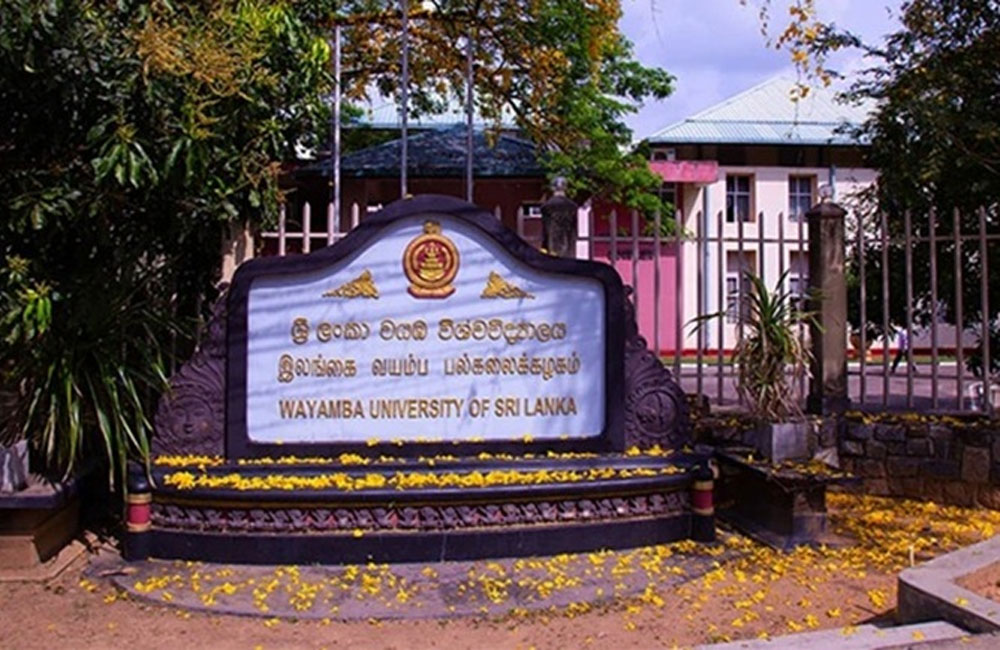
04 Wayamba University students remanded over ragging incident
Four third-year students of the Wayamba University of Sri Lanka in Kuliyapitiya have been remanded until 29th September after being presented before Kuliyapitiya Magistrate Mihil Chiranthana Sathurusinghe.
They were arrested by the Kuliyapitiya Police in connection with an incident where a second-year student was physically assaulted during a ragging episode, resulting in injuries.
The students remanded are residents of Hettipola, Katupotha, Marakawila, and Ukuwela, and are currently enrolled in their third year at Wayamba University.
Police informed the court that the assaulted student is receiving inpatient treatment at Kuliyapitiya Teaching Hospital, and that a preliminary identification parade must be conducted to confirm the suspects.
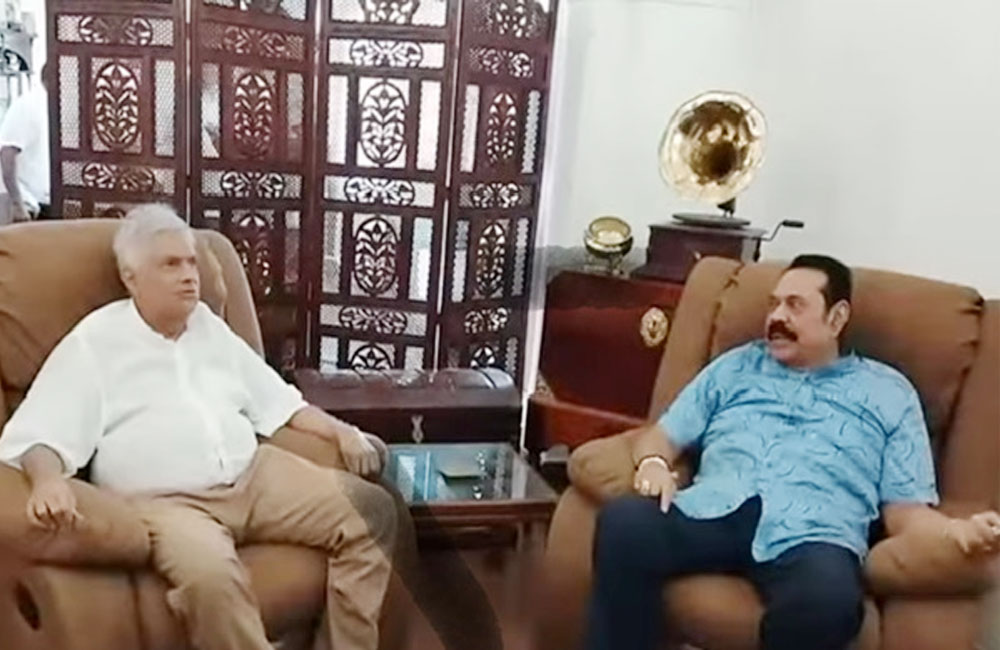
Ranil Travels to Carlton to Meet Mahinda
Former President Ranil Wickremesinghe visited Former President Mahinda Rajapaksa at his Carlton residence in Tangalle, to inquire into the health of former President Mahinda Rajapaksa.
He was accompanied by a group including Sagala Ratnayake.
Later, former Presidents Mahinda Rajapaksa and Ranil Wickremesinghe engaged in a cordial conversation.
The former presidents further met with the members of the public from various parts of the country who had also gathered at the residence to meet the two former presidents.
Several politicians who have served under both leaders were also present during the visit.
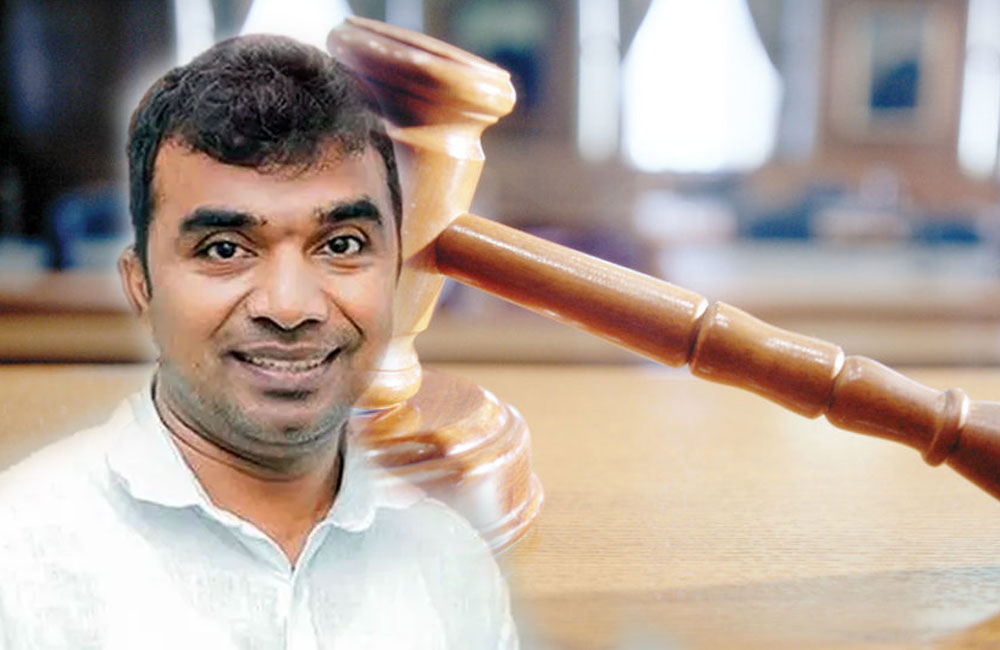
Sampath Manamperi to be detained for 90 days
The Walasmulla Magistrate’s Court has granted permission for authorities to detain and interrogate Sampath Manamperi, a former Sri Lanka Podujana Peramuna (SLPP) Pradeshiya Sabha candidate, for 90 days in connection with a major narcotics-related investigation.
The detention order was issued following a request by the Western Province (North) Crimes Division, which informed the court that Acting Defence Minister Aruna Jayasekera had authorized the extended detention under relevant legal provisions.
Manamperi was arrested after police discovered two containers of chemicals on his property in Middeniya, suspected to be used in the production of crystal methamphetamine (commonly known as ‘ICE’).
The case was taken up during proceedings at the Walasmulla Magistrate’s Court.
The first suspect in the case, Piyal Manamperi, has already been remanded until October 8.
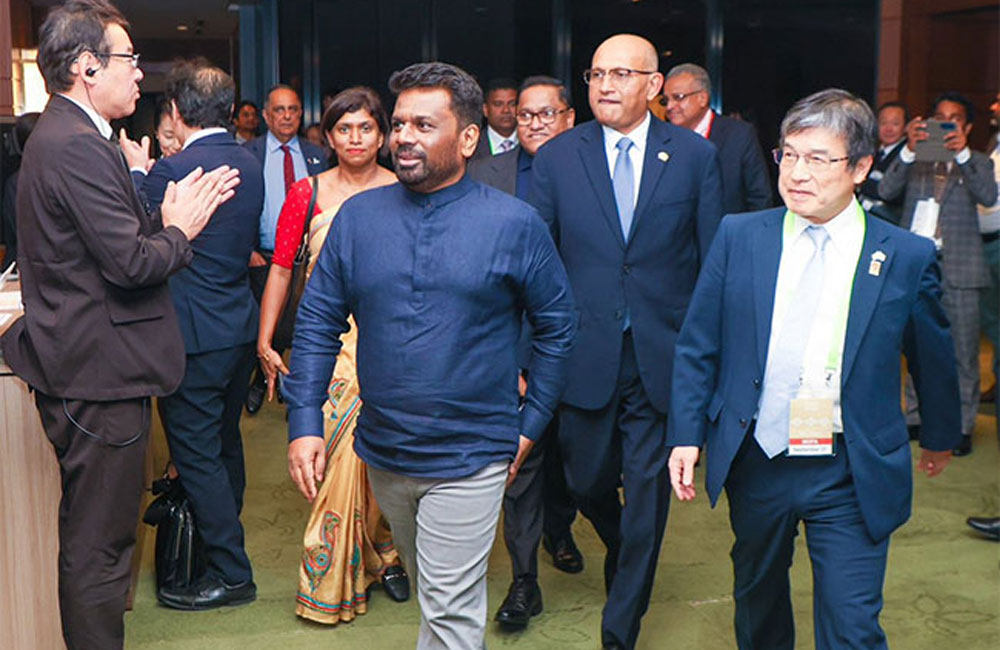
President to meet Sri Lankan community in Japan today
President Anura Kumara Dissanayake, on an official visit to Japan, is scheduled to meet the Sri Lankan community in Tokyo this afternoon (28).
The three-day visit began yesterday (27) with the President’s arrival in Japan, where he was warmly welcomed by Sri Lanka’s Ambassador to Japan Akiyo Isomata, Ambassador Professor Pivituru Janak Kumarasinghe, and senior officials from the Japanese Ministry of Foreign Affairs.
Yesterday, President Dissanayake attended the Sri Lanka Day celebrations at Expo 2025 in Osaka as the chief guest. He traveled from Shin-Osaka to Tokyo this morning to meet the Sri Lankan community.
During the visit, he is expected to meet Emperor Naruhito and hold bilateral talks with Japanese Prime Minister Shigeru Ishiba, the Ministers of Defense, Foreign Affairs, Economy, Trade and Industry, and other senior officials. The President will also participate in the Sri Lanka Investment Forum organized jointly by the Sri Lanka and Japan Chambers of Commerce in Tokyo.
Minister of Foreign Affairs, Foreign Employment and Tourism Vijitha Herath, along with senior Foreign Ministry officials, is accompanying President Dissanayake on the visit.

Update on Na Uyana Monastery cable car tragedy: Full list of victims released
The bodies of the Indian and Romanian Buddhist monks who lost their lives in the tragic cable car accident at the Na Uyana Monastery (Nā Uyana Āranya Senāsanaya) in Pansiyagama, Melsiripura, will be repatriated to their respective countries at the request of their families, in coordination with the High Commissioner’s Office.
The remains of the other monks will be placed at Na Uyana Monastery from 10:00 a.m. on September 26 for final respects. The funeral rites are scheduled to take place on September 27, at 4:00 p.m. at the Pansiyagama Cemetery.
The accident occurred on September 24, 2025, at approximately 9:10 p.m., when 13 monks were traveling from the lower area of Na Uyana Monastery to their dwellings in the Medakanda area. They were using a cable cart that had been in service for around 22 years and was typically used to transport alms and other supplies.
This group of monks, having properly taken leave from their teacher monks and returning to their dwellings, was approaching the hilltop by this cable cart when, due to a malfunction, the cart rapidly descended and crashed into the forest area below, causing the tragic accident.
Of the 13 monks on board, 7 were killed in the accident.
The venerable members of the Maha Sangha who passed away are listed below:
- Malwanegama Samiddhi Thero - Age 47
- Nawalapitiye Uttarananda Thero - Age 27
- Nugegoda Vipassi Thero - Age 37
- Indian Dhammagavesi Thero - Age 31
- Udawalave Santasumana Thero - Age 59
- Romanian Dhammaransi Thero - Age 48
- Russian Dhammarakkita Thero - Age 48
Two monks are currently in critical condition at the Accident and Emergency Unit of the Kurunegala National Hospital, while four others are receiving treatment in various wards.
The venerable members of the Maha Sangha receiving treatment:
- Aniwatte Saranankara Thero - Age 34
- Galnawe Pannadipa Thero - Age 36
- Rajagiriye Lokahita Thero - Age 39
- Pokunuwita Pawarasamahita Thero - Age 26
- Unapane Chandasiri Thero - Age 35
- Pannipitiye Indobhasa Thero
(adaderana.lk)
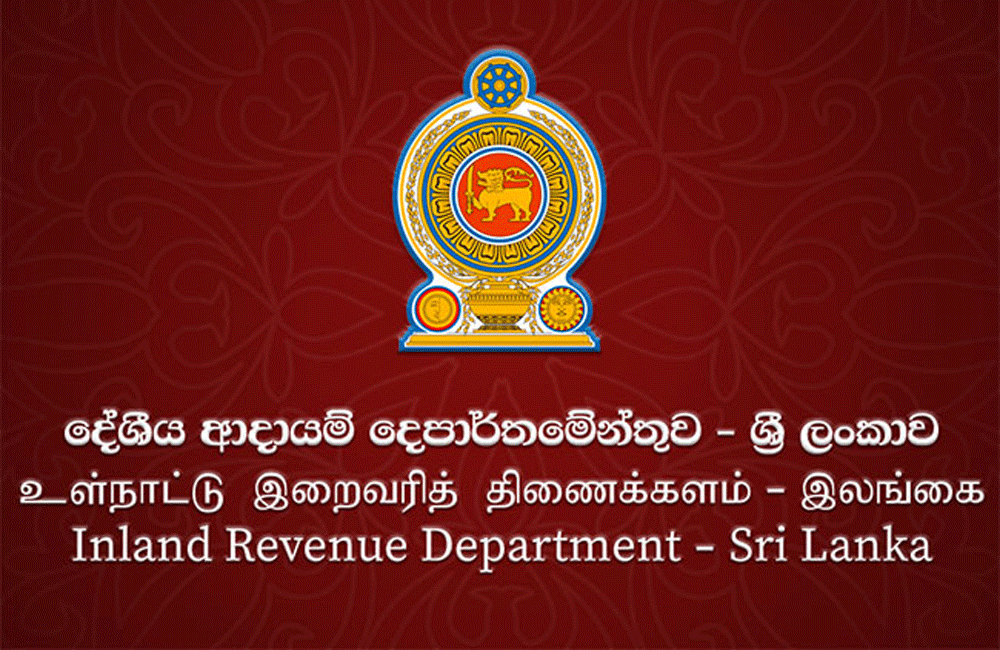
IRD reminds taxpayers to settle final income tax payments
The Inland Revenue Department (IRD) has notified all taxpayers to make their final income tax payments for the 2024/2025 assessment year on or before September 30.
This requirement applies to individuals, companies, corporations, partnerships, and other registered entities.
The IRD stated that tax payments can be made through the Online Tax Payment Platform (OTPP) or at any branch of the Bank of Ceylon (BOC) without the need for physical payment slips.
Taxpayers have also been reminded that interest and penalties will be imposed for delays or failures in making payments.
The Department further emphasized that penalties and interest charged for late or non-payment will not be waived or reduced under any circumstances.

Major Accident in Bandaragama as Three Vehicles Collide
An accident has occurred in the Wewita area of Bandaragama involving a van, a tipper truck, and a three-wheeler.
According to reports, eleven individuals sustained injuries in the collision and were promptly admitted to hospital for treatment.
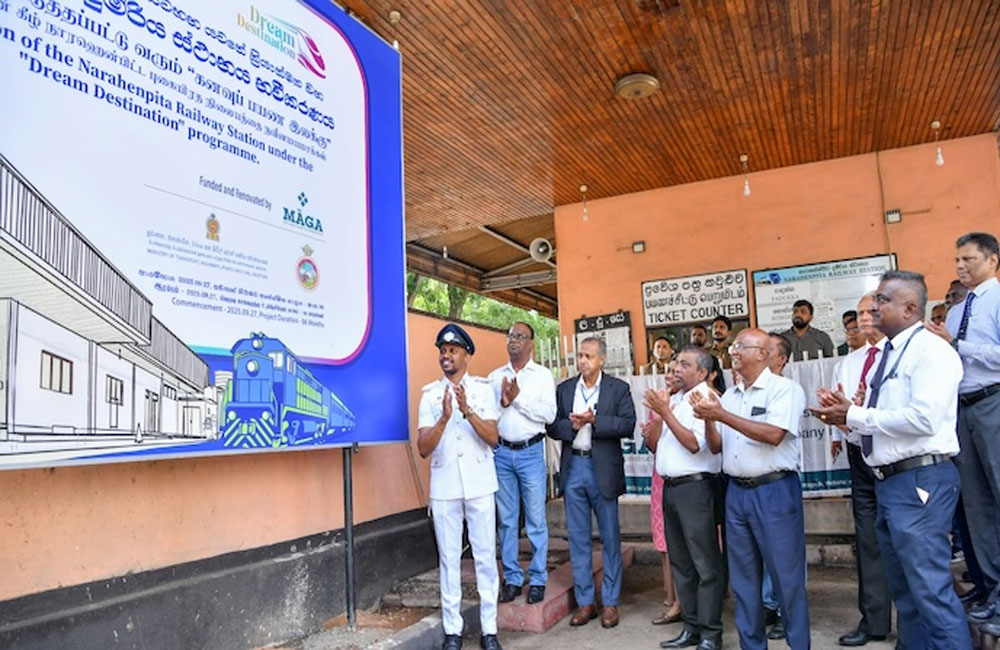
Narahenpita Railway Station renovation project launched
The renovation of Narahenpita Railway Station commenced today (Sept. 27) under the “Dream Destination” program, which operates as part of the “Clean Sri Lanka” initiative.
Located between the Kirulapone and Cotta Road stations along the Kelani Valley line, Narahenpita is considered a key stop. It lies 5.06 km from Colombo and 3.72 meters above sea level, with two main platforms and a single ticket counter.
Planned upgrades include the construction of a passenger footbridge, improved sanitation facilities, and other modernization works. The project is being carried out with the support of the private sector.

Chinese Ambassador reaffirms commitment to strengthening ties with Sri Lanka
Chinese Ambassador to Sri Lanka Qi Zhenhong has reaffirmed China’s longstanding friendship with Sri Lanka, emphasizing that the relationship, which spans over two millennia, continues to remain “deeply rooted and flourishing.”
Speaking at a reception in Colombo to mark the 76th anniversary of the founding of the People’s Republic of China, Ambassador Qi highlighted the success of President Anura Kumara Dissanayake’s visit to China earlier this year.
“At the start of this year, President Dissanayake paid a successful visit to China. Our two leaders reached important outcomes, which provided new strategic guidance for the growth of our bilateral relations,” he said.
The Ambassador pledged that China would continue to work closely with Sri Lanka to promote mutual prosperity, peace, and development, describing the two nations as partners bound by shared aspirations despite challenges.
He also shared China’s vision for the future, noting: “It will undoubtedly achieve new greater glories on the new journey in the new era and make new greater contributions to the noble cause of human peace and development.”
In his closing remarks, Ambassador Qi proposed a toast “to the everlasting friendship between the Chinese and Sri Lankan people, and to the enduring peace and tranquility of the world.”
Full Speech of Chinese Ambassador to Sri Lanka Qi Zhenhong:
“Ayubowan!Vanakkam!Good evening! 大家晚上好!
Thank you all for joining us to celebrate the 76th anniversary of the founding of the People’s Republic of China. On behalf of the Chinese Embassy in Sri Lanka, I would like to extend warm welcome to all the distinguished guests, express heartfelt gratitude to friends from all sectors who have long been caring for and supporting China and China-Sri Lanka relations, and convey festive greetings to our compatriots both in China and Sri Lanka.
Over the past fruitful 76 years, China has witnessed tremendous changes and profound transformation that reshaped the whole country. The Communist Party of China (CPC) has led Chinese people with unity and self-reliance, composing a paean of struggle that rewrites the nation’s future and destiny. From an isolated and backward country that lack adequate food and clothing, to an open and progressing one that enjoy moderate prosperity in all respects, from being impoverished and weak to being able to chart a new blueprint of Chinese modernization. Now,the Chinese people are forging ahead with full confidence on a new journey to build a strong country and advance national rejuvenation.
A rising China showcases the grandeur of a major nation from the East of the World. Today’s China is soaring like a giant legendary bird on the rising winds and flourishing across all sectors. Particularly digital economy and artificial intelligence are thriving, injecting robust momentum into high-quality development. Nowadays, the Shenzhou spacecrafts are reaching for the heavens, the Chang’e probes are embracing the moon, the Mengxiang drilling vessel is exploring the deep ocean, and high-speed rail technology is leading the world. The prowess of such major national projects underscores China’s confidence, and the melody of scientific and technological innovation grows more inspiring.
A developing China provides the world with a continuous stream of impetus and fresh opportunities. As a crucial engine for global economic growth, China’s GDP grew by 5.3 percent in the first half of this year. And its contribution to global economic growth has exceeded 30 percent for many consecutive years. Despite the increasing instability and uncertainty in the world economy featured by unilateralism, bullying practices, trade war and tariff war, China’s economy remains highly resilient and vibrant and its growth continues to maintain a strong momentum. Facts prove once again that the Chinese economy enjoys a bright prospect and remains a vital pillar for global economic growth, continuing to inject precious certainty to global development. The Belt and Road Initiative (BRI) has become the most popular international public good and the largest platform for international cooperation in the world today. We have signed cooperation documents with more than 180 countries and international organizations to jointly pursue prosperity and development.
A China committed to high-quality development and high-standard opening-up will continue to add momentum to global economic recovery, pool strength for worldwide development cooperation, and create opportunities for mutual benefit and win-win outcomes.
A China of certainty brings invaluable stability and positive energy to the world. Facing a world of transformation, China always stands on the right side of history. We hold high the banner of building a community with a shared future for humanity, stay firmly on the right path of peaceful development, uphold true multilateralism, pursue the neighborhood diplomacy featuring amity, sincerity, mutual benefit, and inclusiveness, put forth the Global Development Initiative, the Global Security Initiative, the Global Civilization Initiative and facilitate their implementation. China actively strives to resolve international disputes through dialogue and cooperation. There is no doubt that every increase of China’s strength is an increase of the prospect of world peace.
Earlier in this September, China’s Tianjin witnessed a “Shanghai Cooperation Organization (SCO) moment” that drew the attention of the whole world. President Xi Jinping proposed the Global Governance Initiative, aiming to build a more just and equitable global governance system. To date, in pursuit of a better world, China has proposed four major global initiatives, namely the Global Development Initiative, the Global Security Initiative, the Global Civilization Initiative, and the Global Governance Initiative.
Ladies and gentlemen,
As a Chinese saying goes, “Those with shared aspirations will not be separated by mountains and seas”. The friendship between China and Sri Lanka has spanned over two thousand years while withstanding the test of time and challenges of adversity, and still remains deeply rooted and flourishing. At the start of this year, President Dissanayake paid a successful visit to China. Our two leaders reached important outcomes, which provided new strategic guidance for the growth of our bilateral relations.
This 76-year-long journey through wind and rain has etched the firm footsteps of an ancient nation to realize its dream of rejuvenation. The Chinese nation, with a glorious civilization spanning over 5000 years, has risen through arduous efforts, advanced through reform and opening-up, and forged ahead in the tides of the times. It will undoubtedly achieve new greater glories on the new journey in the new era and make new greater contributions to the noble cause of human peace and development.
In closing, I would like to propose a toast:
To the prosperity of our great motherland,
To the everlasting friendship between the Chinese and Sri Lankan people,
To the enduring peace and tranquility of the world,
And to the health and happiness of all our distinguished guests and your families.
Cheers!”
(adaderana.lk)
Page 81 of 656